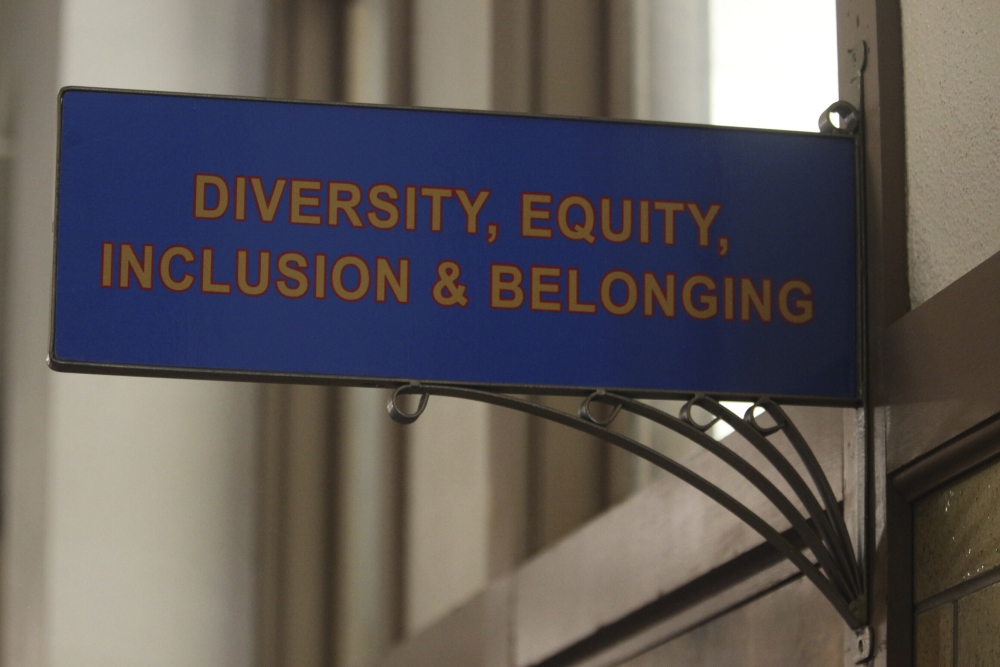Far from being a cause for fear or resentment, the values and implementation of diversity, equity and inclusion are nothing more — or less — than the willingness and the ability to make new friends. DEI policies set the stage for all of us to work through our hesitations and uncertainties. On Martin Luther King Day, Dr.
Laura Renée Chandler of Colby College said: “History is not past. History is inside us.” She also reminded us of the importance of stories.

Diane Oltarzewski lives in Belfast. My experience of growing up in suburban New Jersey may resonate with you. Chatham was one of countless American towns where racial covenants, overt or unspoken, excluded Black people.
At the time, we were just happy to buy a small house there. Little did I know what I was missing. I had no opportunity to rub shoulders with Black kids, find my way through our common humanity to make real connections.
I graduated high school profoundly disadvantaged for the next chapters of my life. Fortunately, I had a father who explained to me, when I was about 7, that Black people existed, and were just as good as we were. He warned me that there were people who despised them, and I was not to believe what I heard.
In his early 20s during the Great Depression, Dad joined the Civilian Conservation Corps for a stint in Vicksburg, Mississippi. What he must have seen there he never shared with us, but I feel certain it informed his message to me. Sensing an opportunity to educate myself, I requested a Black roommate in college.
By the time I graduated in 1969, the civil rights movement had permeated our social awareness. But it took me much longer to recognize how my own psychology and perception of people of color, despite my upbringing, had been polluted by stereotypes and false notions of racial inferiority. My first “aha” moment came after a performance by a small musical ensemble.
The percussionist particularly impressed me. A rather short Black man wearing a rumpled fedora, he played with such skill and grace. I felt enlightened by his open-hearted communication.
As I walked home, it dawned on me that if I had passed that same man on the street, I could easily have dismissed him as an addict or a mugger. Lacking much direct personal experience with Black people, I remained unsure how to relate. Far from “not seeing color,” I was hyper-aware.
Beyond skin color, I sensed our psychologies were also worlds apart. The daily burden of defying cultural stereotypes is not a weight I have to carry. The truth of history lives inside us, with all those insidious cultural messages that have seeped into us via pseudo-science, textbooks, political propaganda or chance conversation.
Until we as a nation find the honesty and humility to face historical truth and nurture real change, those messages will continue to distort our thoughts. Until we understand the meaning of our collective past, and how it is interwoven with inequities today, we must never assume its damage has been resolved. It will take time for direct experience to erode negative images we white people still harbor in our minds, however unconsciously.
DEI is our bridge to a healthy mind, a healthy society. Diversity and inclusion expand our imagination, our ability to communicate. Mutual respect replaces mere toleration of difference.
The reward is equity: only when the playing field is truly level, can we afford to phase out Affirmative Action and DEI policies. For the foreseeable future, we need these tools. To balk at the work, to misunderstand the need for the work, is unacceptable; people have paid too dearly, generation after generation, for its neglect.
I want to live in a world where our eyes can meet across the table with mutual understanding and ownership of our shared history. Only then will America be worthy of our pride. Comments are no longer available on this story Send questions/comments to the editors.
.
Politics

Opinion: To me, ‘DEI’ means being willing and able to make new friends

It's that simple — and it's that complex.














